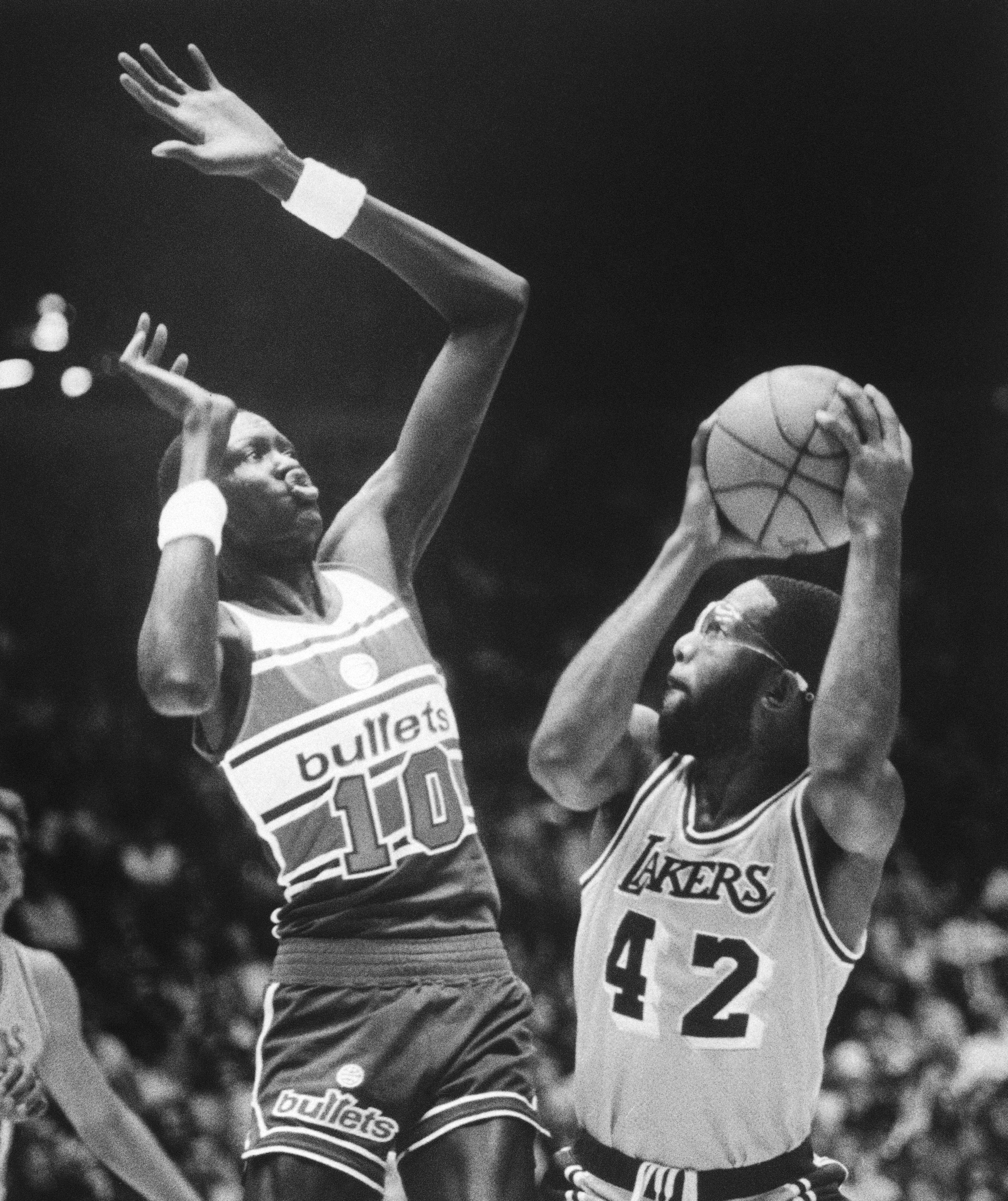Manute Bol: Basketball star, humanitarian

If only his extreme height and unsurpassed skill at blocking shots in basketball were taken into consideration, Manute Bol would garner attention as one of the most intriguing players in pro basketball history.
Bol was much more than a professional basketball player, though. He raised millions of dollars to help victims of the civil war in his native Sudan, including donations of at least a million of his own money. He repeatedly traveled to Sudan to personally assist victims and help rebuild destroyed communities.
And, yes, he was tall: 7 feet, 7 inches, to be precise. It’s disputed whether Bol was the tallest player in NBA history. But his height was amplified on the court by his pencil-thin frame (he weighed about 200 pounds) and his extraordinarily long limbs.
Bol was born in the town of Turalei in what is now South Sudan. An ethnic Dinka, his family were known for their height. His father stood 6 feet, 8 inches and his mother 6 feet, 10 inches. His great-grandfather was said to be 7 feet, 10 inches.

At the time of his birth, Turalei was located in the Republic of Sudan. Bol’s humanitarian work is credited with helping the Christian-majority South Sudan split from the Republic of Sudan, forming a new nation in 2011.
Bol was among a group who came to be known as the Lost Boys of Sudan, about 20,000 boys from the Dinka and Nuer ethnic groups who fled Sudan during the Second Sudanese Civil War. After reaching refugee camps, many Lost Boys were resettled in the U.S., including a group that was placed in Clarkston. It included Jacob Mach, who later became an Atlanta police officer.
Bol frequently traveled to Sudan to visit refugee camps and to work in various humanitarian efforts to help those affected by the nation’s long civil war. He organized and participated in multiple fundraisers to help rebuild Sudanese villages.

As for his basketball career, it was unusual, to say the least. After playing for the University of Bridgeport (Conn.), a Division II school, he began his professional career at the Omni in Atlanta on Oct. 25, 1985, with the Washington Bullets. He didn’t score and committed two personal fouls in a meager three minutes of action.
Bol told Atlanta Journal-Constitution reporter Jeff Denberg he wasn’t nervous to play his first game as a pro.
“The game is the same game you play in high school,” Bol said.
His inauspicious beginning notwithstanding, Bol quickly demonstrated during his rookie season his uncanny skill at blocking shots. On Jan. 25, 1986, against the Atlanta Hawks, Bol finished the game with 15 blocks, the second-highest total in NBA history. He ended his career with more blocked shots than points scored, a feat no other player has accomplished.
Bol’s career spanned 1985 to 1997 and four teams, the Washington Bullets, Golden State Warriors, Philadelphia 76ers and Miami Heat.
Bol helped pave the way for an eventual influx of African players to the NBA, including All-Star Joel Embiid from Cameroon, and former Atlanta Hawks players Dikembe Mutombo from the Democratic Republic of the Congo and Bruno Fernandes from Angola.

Bol passed away in 2010 at the age of 47 from acute kidney failure and complications from Stevens-Johnson syndrome. He received countless tributes after his death for the work he did to promote human rights, including a memorial service at the Washington National Cathedral and a tribute from Sen. Sam Brownback of Kansas on the floor of the U.S. Senate.
“He literally gave his life for his people,” Brownback said. “He went over (to Sudan), he was sick. He stayed longer than he should have. He probably contracted this ailment that took his life while in Sudan, and he didn’t have to do that.”
Bol’s legacy lives on in today’s NBA through his son, Denver Nuggets center Bol Bol, named for his great-grandfather Bol Chol Bol.
The younger Bol stands 7 feet, 2 inches.
BLACK HISTORY MONTH
Throughout February, we’ll spotlight different African American pioneers ― through new stories and our archive collection ― in our Living and Metro sections Monday through Sunday. Go to AJC.com/black-history-month for more subscriber exclusives on people, places and organizations that have changed the world, and to see videos on the African American pioneers featured here each day.
More Stories
The Latest


